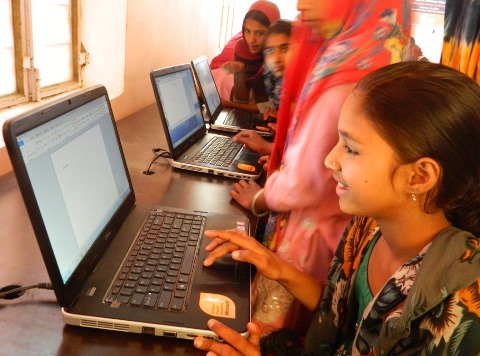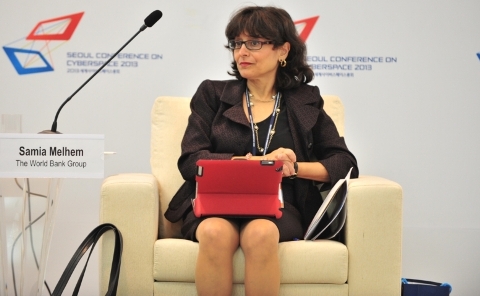
New Delhi: March 10, 2019
Global competition demands transforming current education. With the global economic climate getting more competitive, the demand for a skilled workforce is increasing, and new technology tools play an increasing role in learning. In addition, there are? increased requirements for technology and media literacy, effective communication collaboration, critical thinking and problem solving. We need to get our ideas across to people with whom we do not have direct contact.
Technology can play an important role in enhancing the educational process, particularly when it is developed based on the needs of teachers and the local education systems.
Governments need to develop a holistic solution to provide 21st century opportunities for their citizens with a comprehensive approach that includes accessibility, connectivity, education, and digital content. For example, India has created the e-Governance initiative. The holistic National e-Governance Plan is now pivotal in realisation of this vision by focusing on? providing accessibility of government services to citizens through the internet.
How do we attain an ideal learning environment using technology?
Step 1: Invest in People and education systems. First of all, it is most important to have the?? right people and system in place. Countries should continue to train teachers to effectively?? integrate ICT into classrooms. Intel?s Chairman Craig Barrett pointed out, Computer aren’t magic, teachers are. Putting the right technology tools and teacher training in place is critical in today’s global knowledge economy. Countries should also focus on training government leaders, education decision makers, curriculum designers, evaluators and school principals so that they can build the right policy, standards and support systems.
Step two: Provide equal opportunity This needs to be done by providing affordable access to technology through government financing, interesting local content, outreach to rural areas and developing private public partnerships. Providing equal opportunities, such as access to and use of technology, to lower income groups (disadvantaged socio-economic groups) through proactive public private partnership is also very important.
Step 3: Implement key policies In order to succeed, implementing holistic and integrated policies that foster universal equity and access to ICT is key. In many countries the telecom companies are subsidising the cost of netbooks so that they are available to consumers at a very low or no cost at all. Some may charge only cost of Internet connectivity. Many countries have reduced or eliminated taxes for PCs used in schools. It is important to remember that even reducing GST or even providing low or no-cost PCs reduces the digital divide.
All schools should have free access to the Internet
Governments can support the cost of Internet access outside of schools with programmes such as universal service funds, telecom provider initiatives, competition-neutral direct public subsidies or aggregating demand of schools and other relevant institutes in a given community. Depending on the country and its particular situation, the sources for funding can include national budgets of governments, charges on interconnecting services, levies on subscribers (e.g. on access lines) and levies on operator revenues. Funding from international development agencies is also an option.
Competitive telecommunications markets are necessary to allow for affordable internet access
Developing countries will not be able to integrate into the global knowledge economy unless their citizens, schools and businesses have affordable Providing equal opportunities, such as access to and use of technology, to lower income groups (disadvantaged socio-economic groups) through proactive public-private partnership is also very important Internet access. Evidence from across the world has shown that competition through the liberalisation and privatisation of telecommunication markets drives down prices. Flexible, technology-neutral radio spectrum policy can also spur competition by allowing new, breakthrough wireless technologies to enter the market.
Teachers have a higher level of productivity because they are now able to share work and collaborate across the country. This allows them to get faster access to information resources, and spend less time in creating higher quality learning material that can be accessed by students over the wireless LAN. Career satisfaction among teachers has increased, while students analytical and communications skills have greatly improved.







